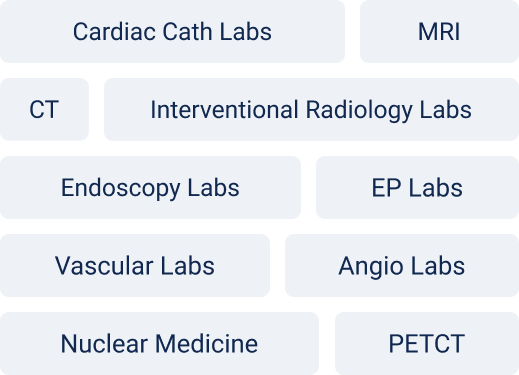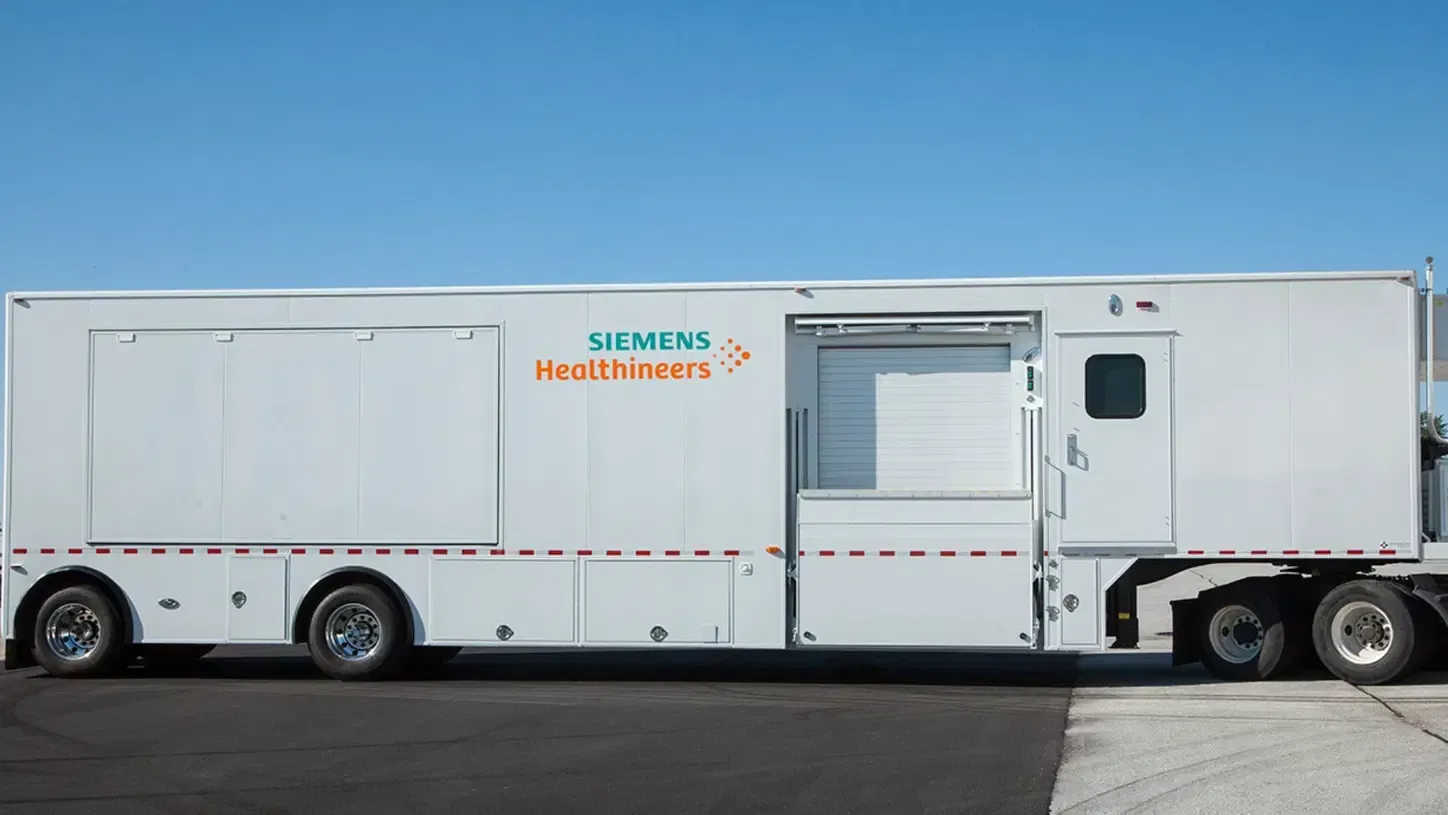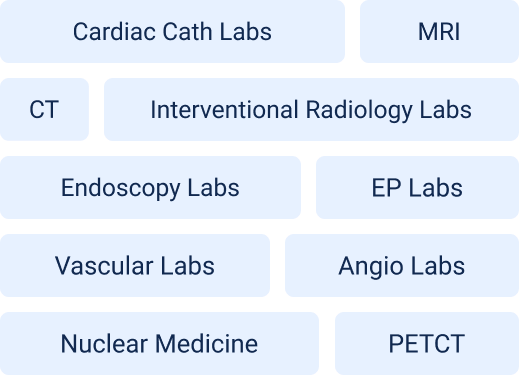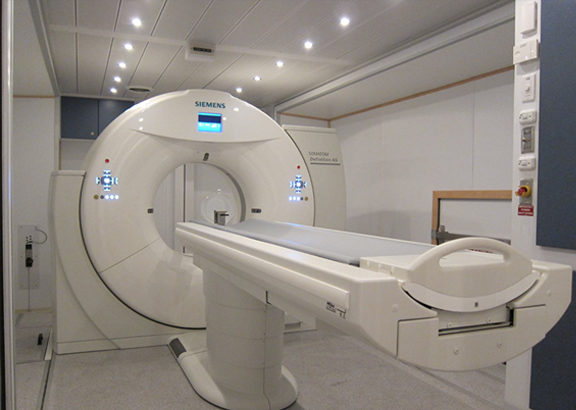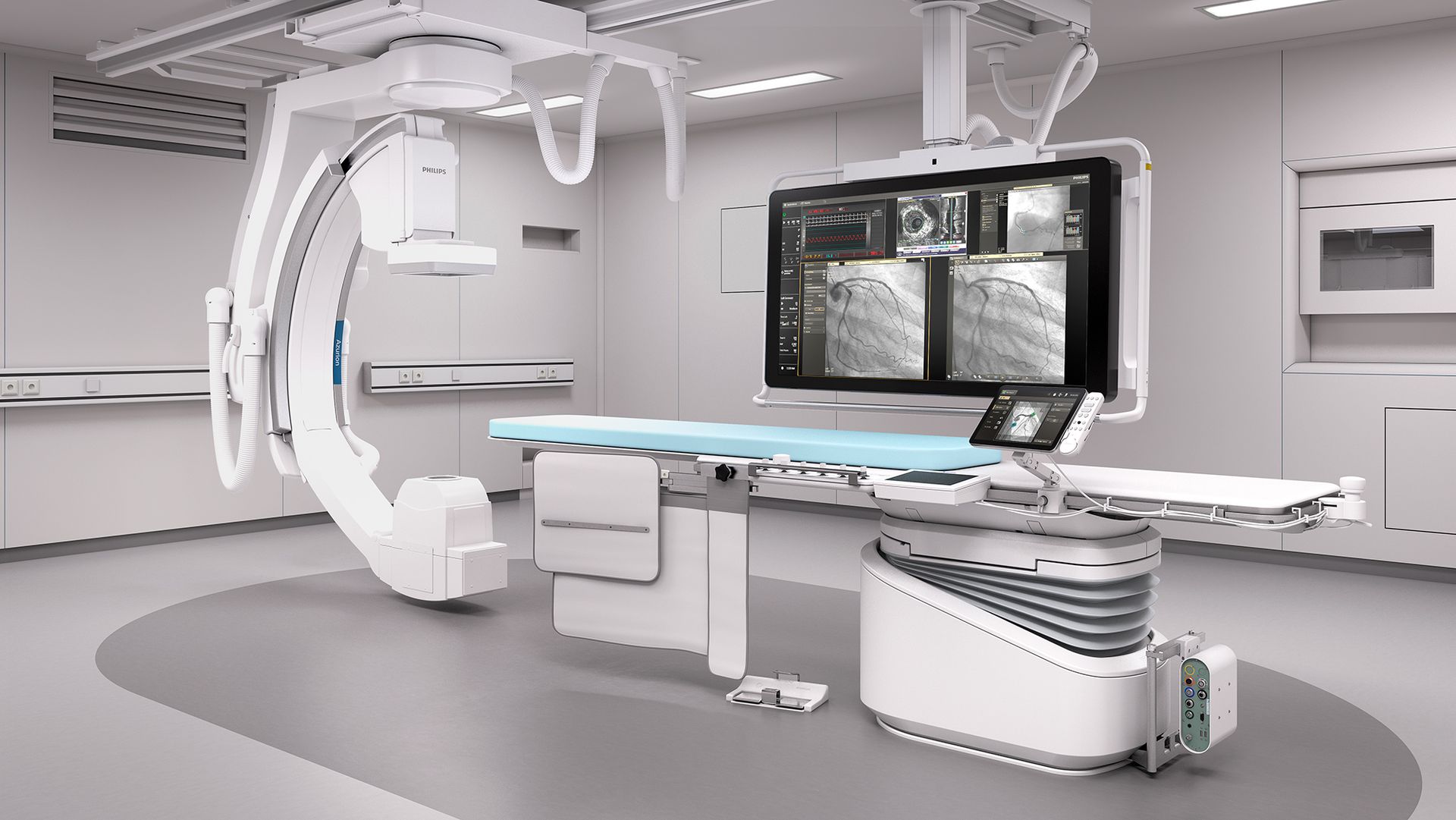How to Start a Mobile Clinic: Bringing Healthcare to Every Doorstep
Your Mobile Clinic Launch Guide
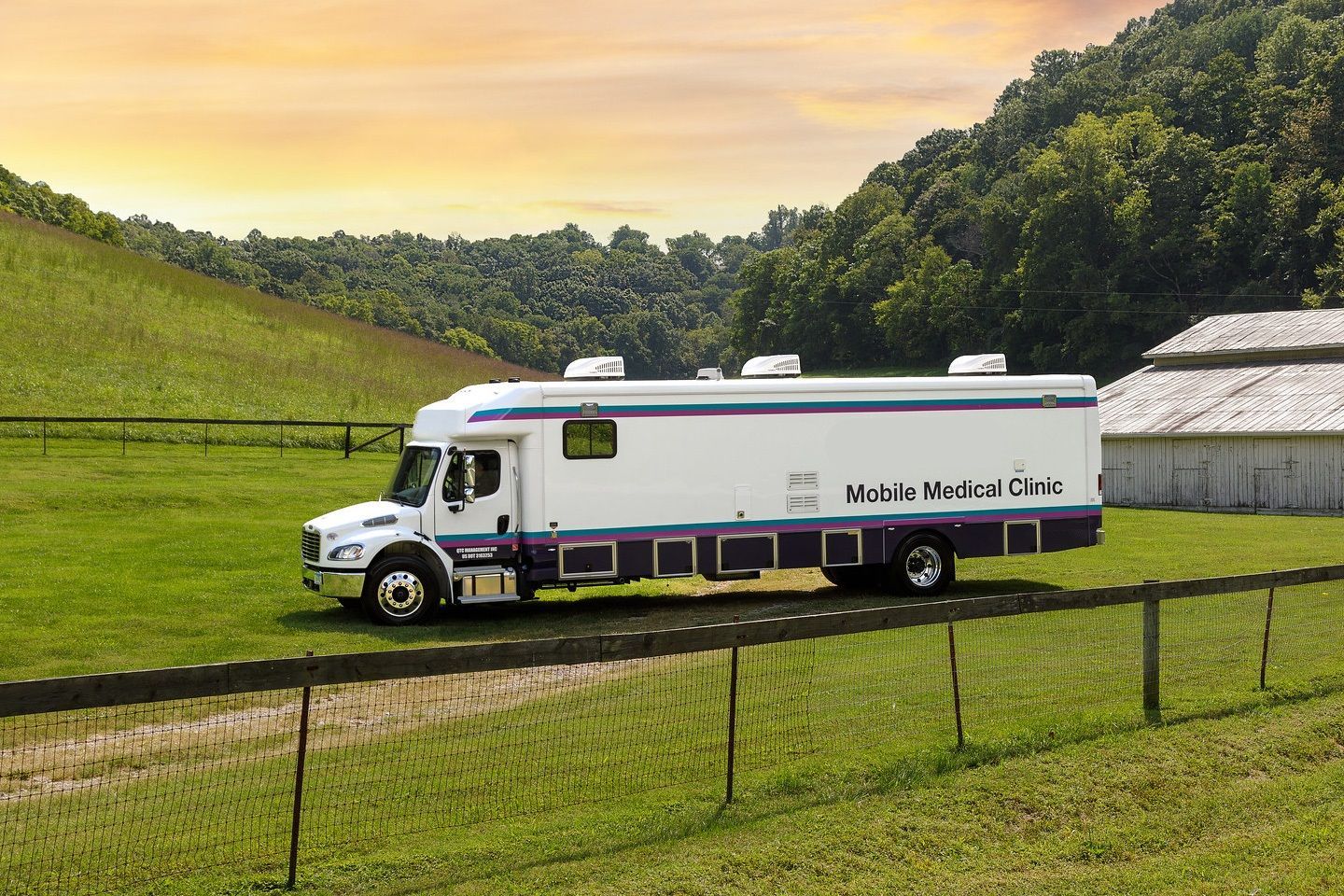
Imagine a world where quality healthcare is not confined within four walls. Instead, it travels to meet patients wherever they are. A world where common barriers like distance, mobility, and access are dismantled by the wheels of innovation (pun intended!). This is not a distant dream—it's the present for healthcare providers that have embraced mobile clinics.
Starting a mobile clinic is more than a logistical endeavor; it's the start of a mission to transform lives and communities. At Atlas Medical, we've seen firsthand the profound impact these clinics have on healthcare accessibility.
If you're a healthcare provider with a vision to reach beyond traditional healthcare settings, this guide is your roadmap to making that vision a reality.
Learn more about our Mobile Clinic Partnership Programs here.
Understanding the Need for Mobile Clinics
Healthcare disparities are a pressing issue. Rural areas, underserved urban neighborhoods, and vulnerable populations often lack easy access to medical services. Mobile clinics bridge this gap by delivering care directly to those who need it most.
Consider Mrs. Thompson, a diabetic patient living 45 minutes away from the nearest hospital. She doesn't move very well, can't drive herself, and has limited support. For Mrs. Thompson, routine check-ups become a herculean task. She just can't keep up with the demands that this routine requires. She becomes an uncompliant patient and her health suffers.
A mobile clinic changes Mrs. Thompson's life. Essential healthcare is now brought right to (or at least near) her doorstep. The healthcare routine required by Mrs. Thompson is now reasonable. She remains healthy as she routinely sees her healthcare providers.
By starting a mobile clinic, you're not just offering services; you're providing hope, fostering trust, and building healthier communities.
Crafting Your Vision and Mission
Every successful venture begins with a clear purpose.
Define Your Mission
What drives your desire to start a mobile clinic? Perhaps it's to reduce healthcare inequalities, provide specialized services, or respond to a community health crisis. . Articulate this mission —it will be the beacon guiding every decision you make.
Identify Your Target Population
Understand who you aim to serve. Is it rural communities lacking primary care? Urban areas with high rates of chronic diseases? School-aged children needing primary care? Tailoring your services to specific needs enhances your clinic's effectiveness and impact.
Conducting a Feasibility Study
Before our wheels hit the road, thorough planning is essential.
Community Needs Assessment
Engage with the community. Hold meetings, distribute surveys, and collaborate with local organizations to gather insights. What are the prevalent health issues? What services are most needed? This grassroots approach ensures your clinic addresses real, pressing needs.
Market Analysis
Examine existing healthcare providers in the area. Identify gaps in services and opportunities for collaboration. Understanding the landscape helps position your mobile clinic strategically.
Financial Projections
Estimate start-up costs, operational expenses, and potential revenue streams. Include costs for the vehicle, medical equipment, staffing, insurance, fuel, and maintenance. A realistic budget safeguards your clinic's sustainability.
Learn more about our Mobile Clinic Partnership Programs here.
Navigating Legal and Regulatory Landscapes
Compliance is non-negotiable.
Licensing and Accreditation
Secure all necessary medical licenses for practitioners. Your mobile clinic may need to be registered as a healthcare facility, even if it's on wheels. Accreditation from reputable bodies enhances credibility and trust.
Regulatory Requirements
Adhere to health regulations at federal, state, and local levels. This includes meeting standards for sanitation, patient privacy under HIPAA, and transportation regulations for medical vehicles.
Insurance
Obtain comprehensive insurance coverage, including general liability, malpractice, and auto insurance. Protecting your clinic, staff, and patients is paramount.
Securing Funding and Resources
Financial foundations determine longevity.
Explore Funding Opportunities
- Grants: Government agencies, nonprofits, and private foundations often fund initiatives that improve community health.
- Donations and Sponsorships: Engage philanthropists, local businesses, and community members who share your vision.
- Partnerships: Collaborate with hospitals, healthcare networks, or universities that can provide financial or in-kind support.
Budget Wisely
Allocate funds judiciously. Prioritize critical expenses like medical equipment and staffing.
Designing and Equipping Your Mobile Clinic
Your mobile clinic is the physical embodiment of your mission.
Choosing the Right Vehicle
Select a vehicle that suits your service scope. Options range from modified vans for basic services to expansive trailers for comprehensive care.
- Considerations:
- Size and Space: Ensure there's adequate room for patient consultations, examinations, and equipment.
- Accessibility: Incorporate ramps or lifts to accommodate patients with disabilities.
- Durability: Opt for vehicles designed to handle frequent travel and varied terrains.
Interior Layout and Design
Create a welcoming, efficient space.
- Patient Areas: Private examination rooms, waiting areas (if space permits), and restroom facilities.
- Staff Workspace: Functional areas for documentation, sterilization, and storage.
- Ambiance: Use calming colors and adequate lighting to make the environment comforting.
Equipping the Clinic
Invest in quality medical equipment.
- Essential Tools: What medical tools are in everyone of your brick and mortar clinics. You'll want these in your mobile clinic!
- Specialized Equipment: Depending on services—dental chairs, ultrasound machines, lab testing devices, MRIs. Well find a way to design a mobile clinci that will fit whatever you need to run your practice
- Technology Integration: Implement electronic health records (EHR) systems, telemedicine capabilities, and reliable internet connectivity.
Learn more about our Mobile Clinic Partnership Programs here.
Building Your Team
People are the heart of your mobile clinic.
Recruit Dedicated Professionals
- Healthcare Providers: Physicians, nurse practitioners, physician assistants, nurses, and specialists as needed.
- Support Staff: Medical assistants, drivers with appropriate licenses, administrative personnel.
- Volunteers: Leverage the passion of community members or students pursuing healthcare careers.
Foster a Mission-Driven Culture
Ensure every team member is aligned with your clinic's mission. Provide training on cultural competency, patient communication, and the unique challenges of mobile healthcare delivery.
Operational Planning and Logistics
Efficiency keeps your clinic moving smoothly.
Scheduling and Route Management
Develop a consistent schedule.
- Fixed Routes: Establish regular stops to build trust and predictability within communities.
- Flexible Scheduling: Adapt to emerging needs or health crises by adjusting routes as necessary.
Use route optimization software to minimize travel time and maximize service delivery.
Supply Chain Management
Implement systems for inventory tracking.
- Regular Restocking: Establish relationships with suppliers for timely replenishment of medical supplies and medications.
- Maintenance Protocols: Schedule routine checks for both medical equipment and the vehicle to prevent disruptions.
Safety and Emergency Preparedness
Prepare for the unexpected.
- Emergency Plans: Equip your clinic with first aid kits, emergency contact lists, and protocols for medical emergencies or breakdowns.
- Infection Control: Adhere strictly to sanitation guidelines to protect patients and staff.
Marketing and Community Engagement
Visibility amplifies impact.
Develop a Strong Brand Identity
Create a memorable name, logo, and tagline that encapsulate your mission. Consistent branding builds recognition and trust. You are going to be driving around a giant mobile clinic - make it a billboard!
Leverage Multiple Marketing Channels
- Digital Presence: Launch a user-friendly website and engage audiences on social media platforms.
- Traditional Media: Utilize local newspapers, radio, and community bulletin boards.
- Community Events: Participate in health fairs, school events, and local festivals to raise awareness.
Collaborate with Community Leaders
Engage faith leaders, local businesses, and other influencers. Their endorsement can significantly enhance credibility and outreach.
Learn more about our Mobile Clinic Partnership Programs here.
Measuring Impact and Ensuring Sustainability
Your clinic's success is measured by its impact.
Set Clear Metrics
Define key performance indicators (KPIs):
- Number of patients served
- Types of services provided
- Health outcomes (e.g., reduced blood pressure among hypertensive patients)
Gather Feedback
Implement patient satisfaction surveys and community feedback mechanisms. Listening to those you serve informs improvements and fosters trust.
Continuous Improvement
Regularly review operations, finances, and patient outcomes. Stay adaptable—healthcare needs evolve, and so should your clinic.
Plan for the Future
- Financial Sustainability: Diversify funding sources to reduce reliance on a single stream.
- Expansion Opportunities: Consider scaling services or adding new mobile units based on demand and success.
Partnering with Atlas Medical
Embarking on this journey is monumental, but you don't have to navigate it alone. At Atlas Medical, we specialize in transforming healthcare visions into operational realities.
Why Choose Atlas Medical
- Expertise: We have decades of experience in healthcare solutions and mobile clinic deployment.
- Comprehensive Support: We will guide you in everything from vehicle selection and customization - to reimbursement and financial modeling- to demand testing - to staff training and regulatory compliance - to marketing and demand generation. We become a partner with you and your team for the entirety of your mobile clinic journey.
- Tailored Solutions: We understand that one size doesn't fit all. We customize our services to meet your unique needs and goals.
Learn more about our Mobile Clinic Partnership Programs here.
Take the First Step
Every mile your mobile clinic travels is a testament to your commitment to better healthcare. Let us help you make those miles count.
Reach out to us today to explore how Atlas Medical can support you in launching a mobile clinic that changes lives.
Contact Atlas Medical
- Phone: 888.809.7767
- Email: support@atlas-medllc.com
Let's help make healthcare accessible to all. Together, we can drive change, one community at a time.
Related Articles from Atlas Medical:
How to Start a Mobile Clinic: Bringing Healthcare to Every Doorstep
10 Mistakes to Avoid When Starting a Mobile Health Clinic
How to Start a Mobile Health Clinic Like Our Experts
The Ultimate Checklist for Launching a Successful Mobile Clinic
From Vision to Reality: A Step-by-Step Guide to Starting Your Mobile Health Clinic
5 Inspiring Success Stories of Mobile Clinics—and How You Can Start Yours
© 2023 Atlas Medical. All rights reserved.

Sean Schneider
Mobile Project Manager · Atlas Medical
About the Author
Say hello to Sean Schneider - our Mobile Project Manager at Atlas Medical. Sean has worked in the medical imaging industry for over 20 years, including 10 years with Atlas Medical.
Sean has a knack for making complicated projects simple to understand. Around here, Sean's the man who keeps things moving smoothly.
When Sean isn't helping launch our mobile imaging units at new sites he enjoys spending time with his family, golf, and hockey.
Request a Mobile Imaging Solution
Our Services Include:
